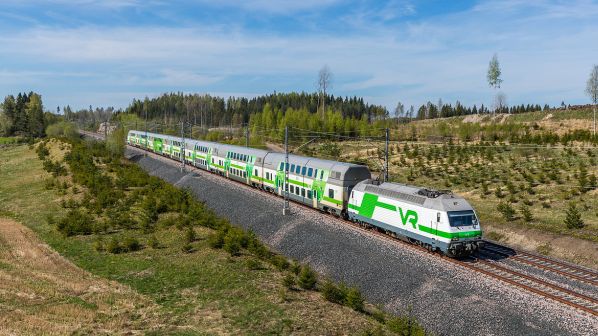The plan, which has been developed by the Ministry of Transport and Communications and endorsed by the government’s Economic Policy Committee, will see the creation of a new wholly-owned public company, which will be responsible for developing the country'srailway industry and promoting large investments in rail.
The limited liability company will be established with minimal share capital and owned and controlled by the Ministry of Transport and Communications. The company will have five subsidiaries:
- Suomirata project company
- Helsinki - Turku high-speed project company
- rolling stock company
- property company, and
- Rail Baltica
The government will transfer €100m to the company’s balance sheet. This includes €16m for Suomirata (new Riihimäki - Tampere line); €10m for Helsinki - Turku, €71m for the rolling stock company, and €2m for Rail Baltica.
In the first phase, the state will seek to capitalise the Suomirata and Helsinki - Turku project companies. As planning for these two major projects progresses, the company will negotiate further capitalisation.
“It is clear that funding will not be available through the budget to carry out large and necessary rail investments, and that is why we need new means of financing,” Berner says. “Functional rail transport is essential to facilitate everyday mobility and at the same time is an important factor for Finland’s competitiveness.”
Suomirata has an estimated cost of €5.5bn and is forecast to carry around 6.5 million passengers a year. The €2.2bn Helsinki - Turku high-speed line is expected to carry around 1.6 million passengers annually.
Rolling stock company
The ministry is planning to transfer all Sm2 and Sm4 trains used on suburban services in the Helsinki area to the new rolling stock company as part of the reform of VR Group.
The government says the company will be capitalised immediately to enable it to begin the procurement of new rolling stock to replace life-expired equipment.
The aim of the property company will be to ensure all operators are granted equal access to stations, terminals and maintenance facilities as well as the services provided at these locations.
The Ministry of Transport and Communications says the implementation of major investments by project companies will significantly reduce the need for government funding.

